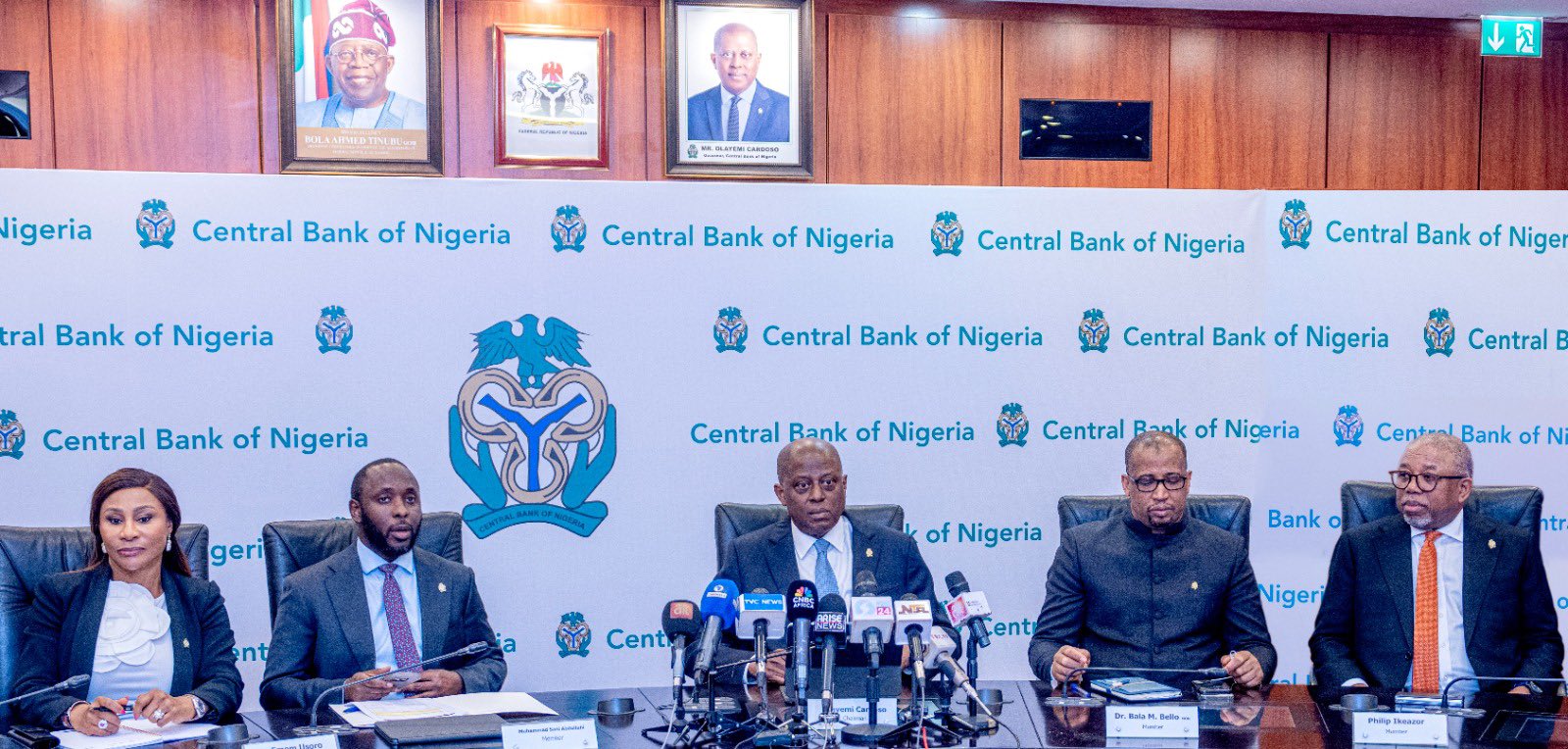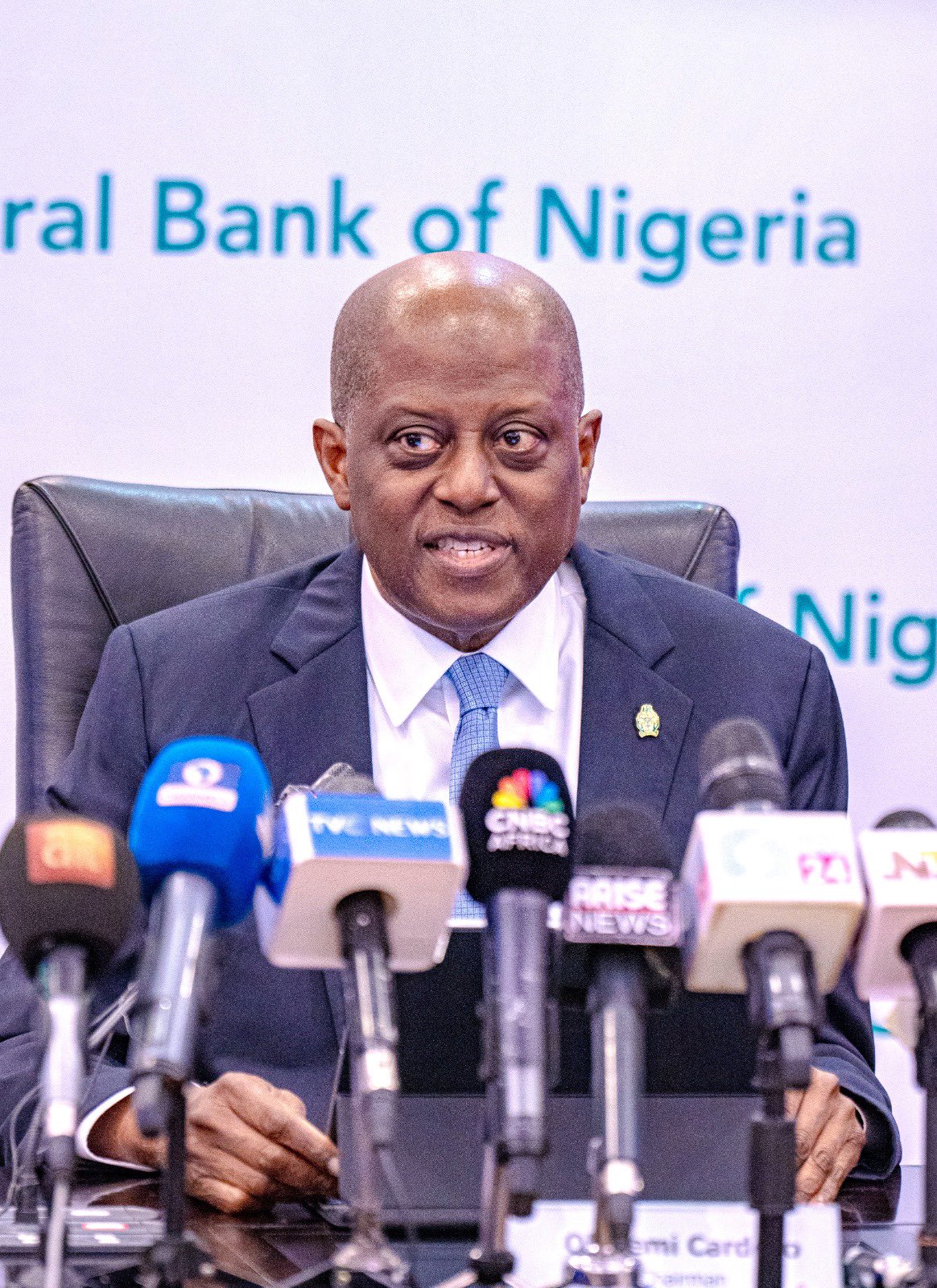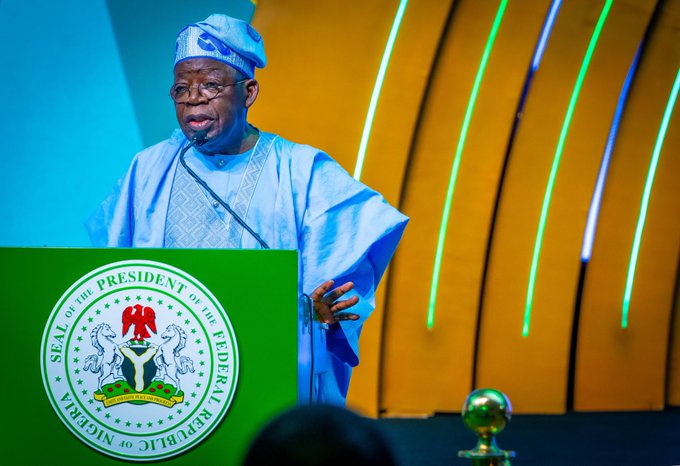Listeners:
Top listeners:
00:00
00:00
volume_up
chevron_left
-
play_arrow
104.9FM Best rock music demo
-
play_arrow
Demo Radio Nr.1 For New Music And All The Hits!
-
play_arrow
Demo Radio Techno Top Music Radio
-
 play_arrow
play_arrow
Police Commissioner Launches Weapon and Riot Control Training for FCT Officers Democracy Radio

share
close
By Oluwakemi Kindness

The Monetary Policy Committee has confirmed that eight banks have met the CBN’s recapitalization target, signaling progress in the ongoing financial sector reforms.”
Governor of the Central Bank of Nigeria, Olayemi Cardoso, stated this in Abuja on Tuesday while briefing Newsmen on the outcome of it 301st meeting.
He commended the progress made by Deposit Money Banks in strengthening their capital base, noting that several others are advancing steadily toward meeting the set deadline.
The Committee urged the CBN’s management to sustain its robust oversight of the banking sector to ensure continued resilience, safety, and soundness of the financial system.
Also the apex Bank governor said the MPC voted unanimously to maintain the current monetary policy stance in a bid to consolidate recent gains in disinflation and price stability.
All key monetary policy parameters were left unchanged as follows:
*Monetary Policy Rate (MPR) retained at 27.50%*
*Asymmetric corridor maintained at +500/-100 basis points around the MPR
*Cash Reserve Ratio (CRR) held at 50.00% for Deposit Money Banks and 16.00% for Merchant Banks*
*Liquidity Ratio sustained at 30.00%*

Governor Cardoso explained that the decision was anchored on the need to preserve the momentum of disinflation, following a third consecutive monthly decline in headline inflation, which dropped to 22.22% in June from 22.97% in May.
But despite this moderation, the Committee acknowledged underlying inflationary pressures, with food and core inflation recording upticks.
Month-on-month headline inflation rose slightly to 1.68%, attributed to rising costs of services and imported food.
The Committee noted other positive macroeconomic indicators, including a stable foreign exchange market, rising oil production, increased non-oil exports, and a significant decline in imports.
Gross external reserves also climbed to $40.11 billion as of July 18, providing about 9.5 months of import cover.
Written by: Democracy Radio
#Bank Recapitalisation Nigeria #Cenbank #Central Bank of Nigeria #DemocracyRadio #MPC Meeting Nigeria #Nigerian Economy 2025 CBN Governor
Rate it
Similar posts
Copyright Democracy Radio -2024


